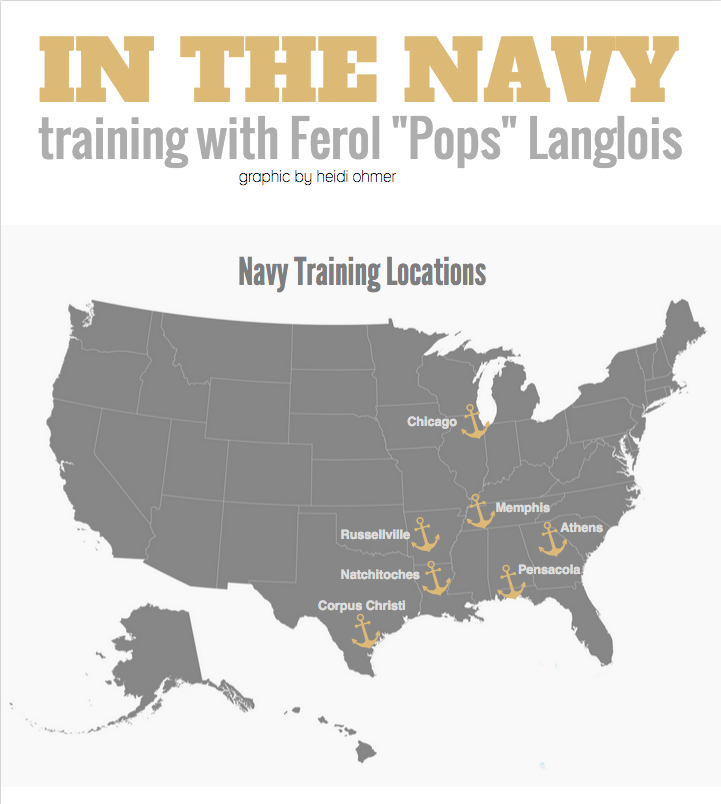by Heidi Ohmer, Web Editor
Ferol M. Langlois introduced himself with a firm handshake. “Call me Pops. If you ask for me by my first name, no one will know who you’re asking for.”
Pops was born March 15, 1923, in Kenner, Louisiana, but moved to Destrehan when he was five years old. His house was provided by his father’s employer — an oil company — and cost $15 a month. And even though he grew up in the Great Depression, his dad owned a Model-T sedan.
“Considering how everyone else was doing, my family always had what we needed.”
The kitchen in the house had large wooden vats where his mother kept red beans, white beans, rice, and potatoes they bought by the sack.
But the best part were the “shenanigans” with his three siblings. Just typical Southern kids playing games outside, pulling pranks, being competitive in Boy Scouts, and swimming in City Park’s swimming pool. And then he met his wife.
“She was 13 and I was 15. You know, she was the only woman I have ever been with in any shape and form, and she is the only woman I will ever be with. We did and went everywhere together, and I have the utmost respect for her.”
Pops went to Destrehan High School where he was in Boy Scouts and played multiple instruments in the school band. One of his proudest moments was achieving Eagle Scout in the Boy Scouts.
And then the world changed.
“We were in Braithwaite playing football—it was a state championship game—and that’s when Pearl Harbor happened. They stopped the game and made the announcement on the PA system to us.”
The war mostly changed the stuff of everyday life. Stuff like meat, shoes, tires, gas were rationed. Pops said gas stamps had ratings. He received a “C rating” later on because he was in the service, which meant he received more gas than the other ratings. The nation came together to support the troops by not only rationing, he said, but also the lady riveters who stepped up to work.
He graduated from high school in 1942 and then volunteered for the Navy where he was trained to be a pilot.
He went to Northwestern State University in Natchitoches, Louisiana, for the V-5 program for aviation. The program had about 200 “boys” and the program lasted for 90 days. He traveled to many different places learning things like how to fly and land and navigation.
His last stop was Pensacola, Florida, where he flew military planes. Pops had two or three weeks of flight school left until he got his wings. And then his military career suddenly ended.
“We were in the pool — I loved to swim — and we were playing water polo. I was underwater with the ball and a guy stepped on my head. I lost hearing in my left ear.”
The military had about $30,000 into his training and the academy was trying to keep him in the service. After being hospitalized for 90 days, he was sent to Chicago where he attended another school to study how to repair the equipment that he was already trained on. He was assigned to Corpus Christi, Texas, after he completed his schooling.
After the war, Pops married his childhood sweetheart, Gertie, with whom he had six children. He went to Delgado in New Orleans for refrigeration repairs and eventually ended up at Firestone in Baton Rouge. He then got an opportunity to move to Thibodaux where he worked for Firestone for 23 years until his retirement.
And yet, after so many experiences . . . it’s his wife that mattered most.
“I lost her on my birthday. I didn’t celebrate my birthday for a couple years, but then I realized something. She has it better than me, she is up in heaven while I’m still on this earth, and one day I will see her again.”

